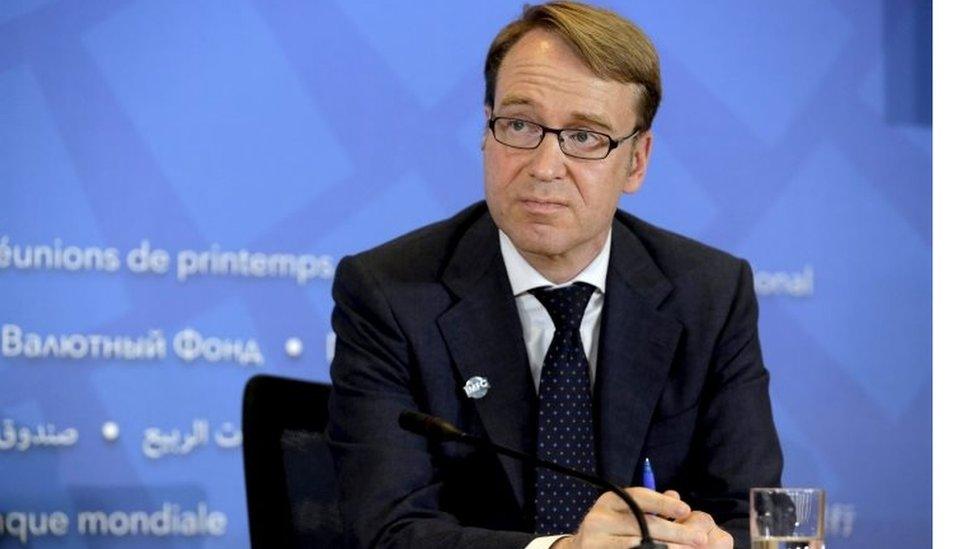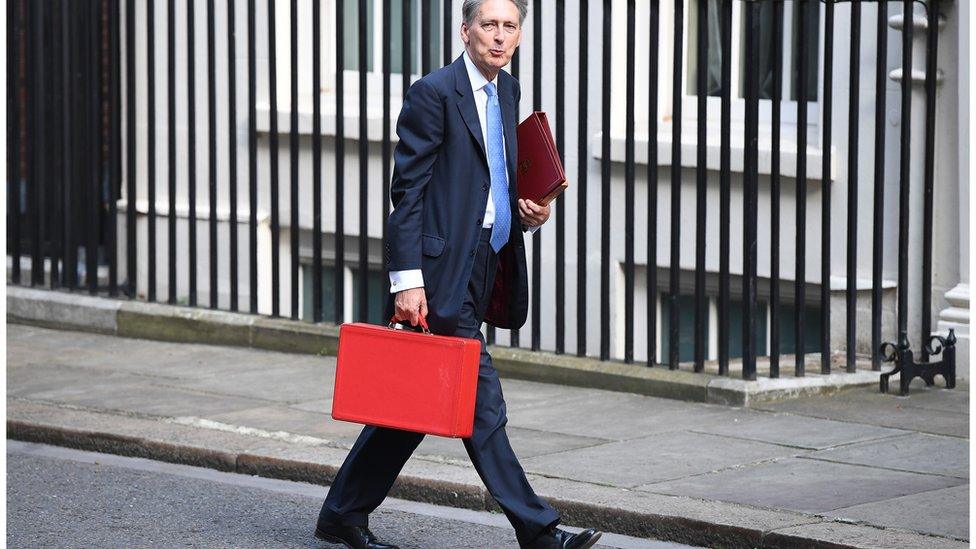Banks 'would lose passporting rights with hard Brexit'
- Published

Jens Weidmann, head of Germany's central bank, said British-based banks would lose their passporting rights if the UK left the single market
UK-based banks would lose the automatic right to trade in EU states if the UK left the single market, the head of Germany's central bank has said.
Jens Weidmann said a "hard Brexit" would strip banks of valuable "passporting rights" that give unfettered access to the bloc.
This would force some to relocate from London, he added.
Passporting rights are considered by some to be vital to London's position as a financial hub.
It allows banks to serve clients across Europe without the need for licences in individual countries.
Foreign secretary Boris Johnson has claimed that such rights would be preserved even if Britain left the single market after Brexit - an outcome some Eurosceptics favour.
But in interview with the Guardian, Mr Weidmann said that passporting rights were "tied to the single market and would automatically cease to apply if Great Britain is no longer at least part of the European Economic Area".
'Frankfurt attractive'
Were that to happen, he said "several businesses" would reconsider the location of their headquarters.
"As a significant financial centre and the seat of important regulatory and supervisory bodies, Frankfurt is attractive and will welcome newcomers. But I don't expect a mass exodus from London to Frankfurt," he added.

Chancellor of the exchequer Philip Hammond is believed to be ready to give up access to the single market to satisfy voter concerns about immigration, according to reports
However, ratings agency Moody's said banks could in fact "manage" such an outcome. In a report published on Monday, the firm claimed that while the loss of passporting rights would increase costs for banks, this would be "manageable".
This is because incoming EU financial services laws will recognise that some non-EU countries' rules and regulations are as tough as its own, it said.
"In particular, we consider that the third-country equivalence provisions contained within the incoming MiFID II EU directive may provide firms with an alternative means of accessing the single market," said Simon Ainsworth, senior vice president at Moody's.
"The complexity of (quickly) unwinding the status quo and a desire to minimise the initial impact on European domiciled banks will likely lead to the preservation of most cross-border rights to undertake business."
The Chancellor of the Exchequer, Philip Hammond, is believed to be ready to give up access to the single market to satisfy voter concerns about immigration, according to reports, external.
Currently, membership of the single market is conditional upon states accepting free movement of labour, one of the EU's founding principles.